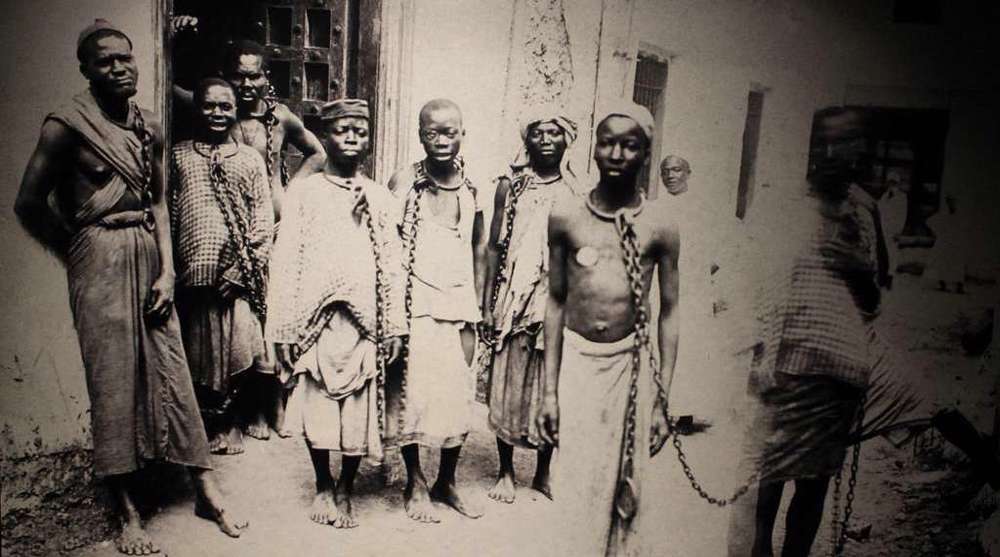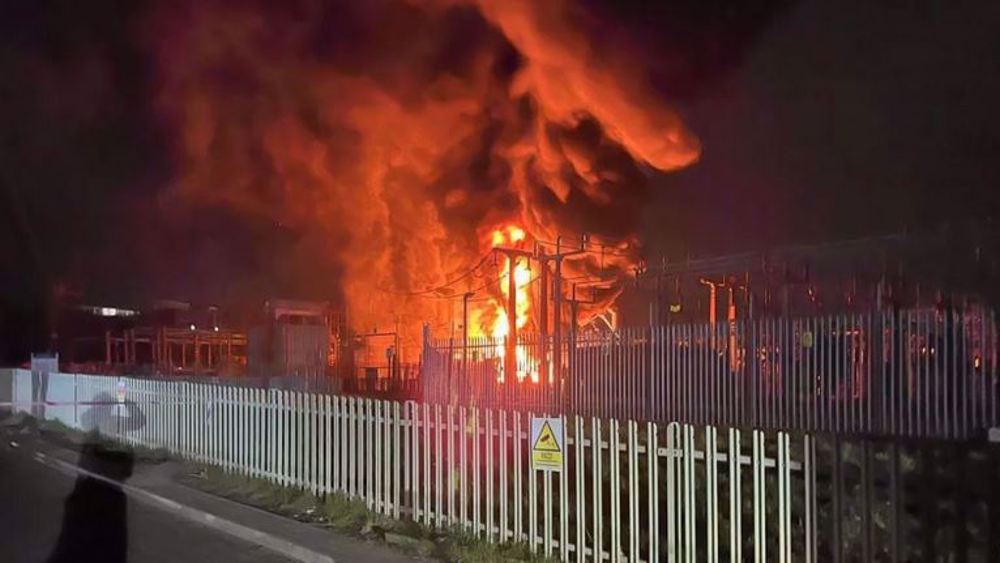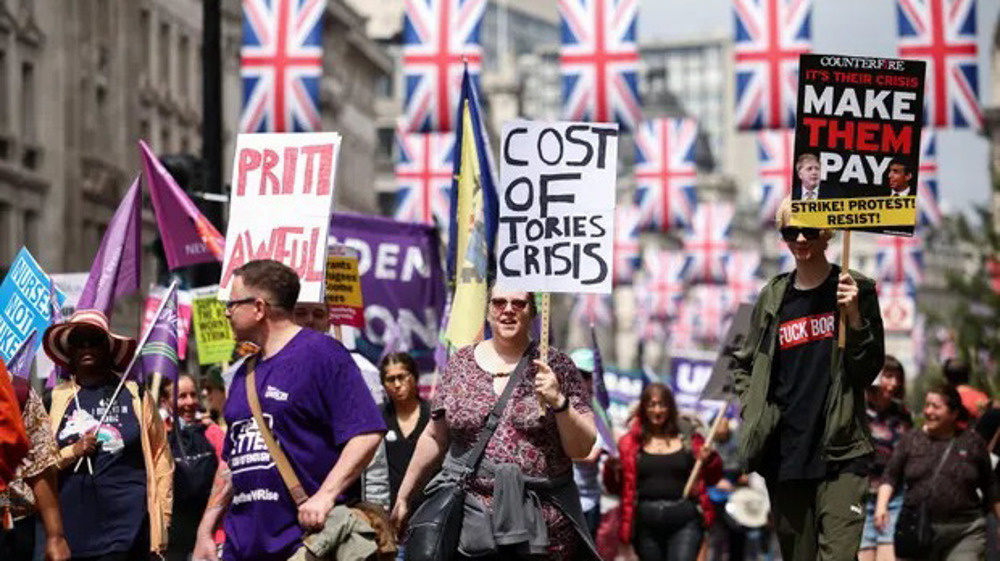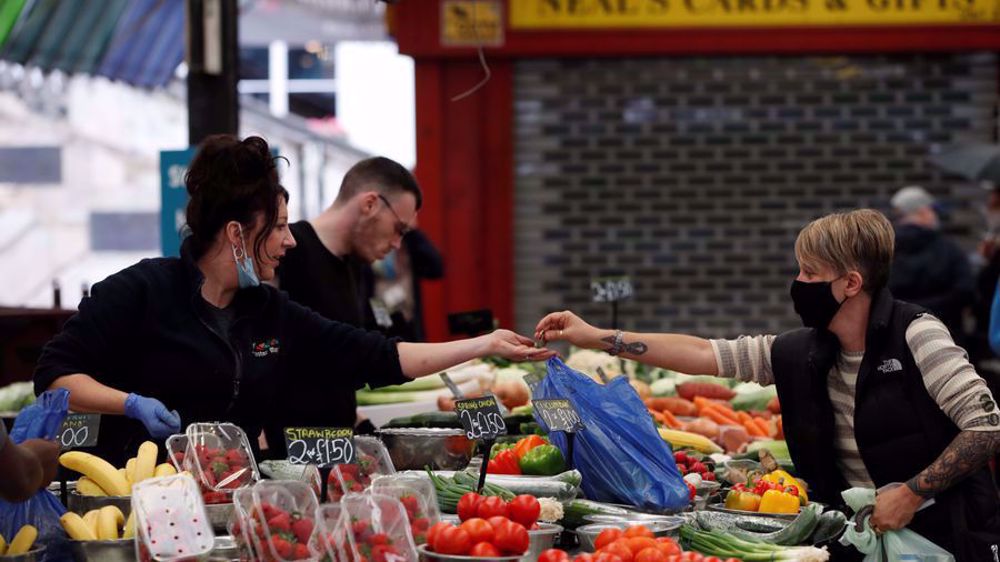‘Cut war not welfare’: Thousands protest in London over cost of living crisis
Thousands of people have taken to the streets in central London over the government's lack of response to the cost of living crisis.
Workers marched to Parliament on Saturday, calling on the government to take action for better pay and job conditions.
Demonstrators held banners reading “cut war not welfare” and “end fuel poverty, insulate homes now."
The event organized by the Trade Union Congress (TUC) has called for a "decent pay rise for public sector workers" and a £15 minimum wage.
The union said its research suggested workers have lost almost £20,000 since 2008 because pay has not kept pace with inflation.
The TUC said there was “harrowing” evidence of the impact the crisis on families, with workers suffering the “longest and harshest” squeeze on earnings in modern history.
The general secretary of the TUC, Frances O’Grady, said Prime Minister Boris Johnson was “cynically abandoning” his commitment to a high-wage economy.
"Let me say this to Boris Johnson – don’t you dare shift the blame for inflation on to working people,” she told crowds.
“Don’t you dare, not after a decade of austerity, privatization and pay cuts. Don’t you dare tell working families we have to put up with more pain," she added.
Johnson said earlier this month that the surge in inflation meant the government could not simply spend more to support people through the cost of living crisis.
He said to increase wages sharply would risk fueling further price rises.
"When a country faces an inflationary problem, you can't just pay more and spend more. You have to find ways of tackling the underlying causes of inflation," said the prime minister.
He said earlier that the country would get through the crisis and “come through on the other side strongly."
The United Kingdom, with an inflation rate at a 40-year high of 9 percent in April, is struggling with a huge rise in the price of energy.
Economists say Britain is expected to have the highest inflation among the counties of the Group of Seven (G7) not just this year, but also in 2023 and 2024.

Rights groups urge UK prime minister to hold back on anti-migrant rhetoric

Report: Most Britons ignorant about scale of UK slavery

London’s Heathrow announces shutdown due to ‘significant power outage’
India downgrades ties with Pakistan after deadly Kashmir attack
Iran’s steel output up 3.7% y/y to 3.3 million mt in March
There is good chance that US and Iran can reach an agreement: Veteran diplomat
VIDEO | Yemen faces environmental crisis due to oil spill caused by US strike
Israeli forces murder minor, critically injure young Palestinian during West Bank raids
Yemen's president orders nationwide ban on all US products
France detains Iranian journalist amid crackdown on pro-Palestinian voices
VIDEO | Digital censorship amid aggression: Google disables Street View in West Bank









 This makes it easy to access the Press TV website
This makes it easy to access the Press TV website